In Tornado Alley, this app creator built a tool to connect users with storm shelters
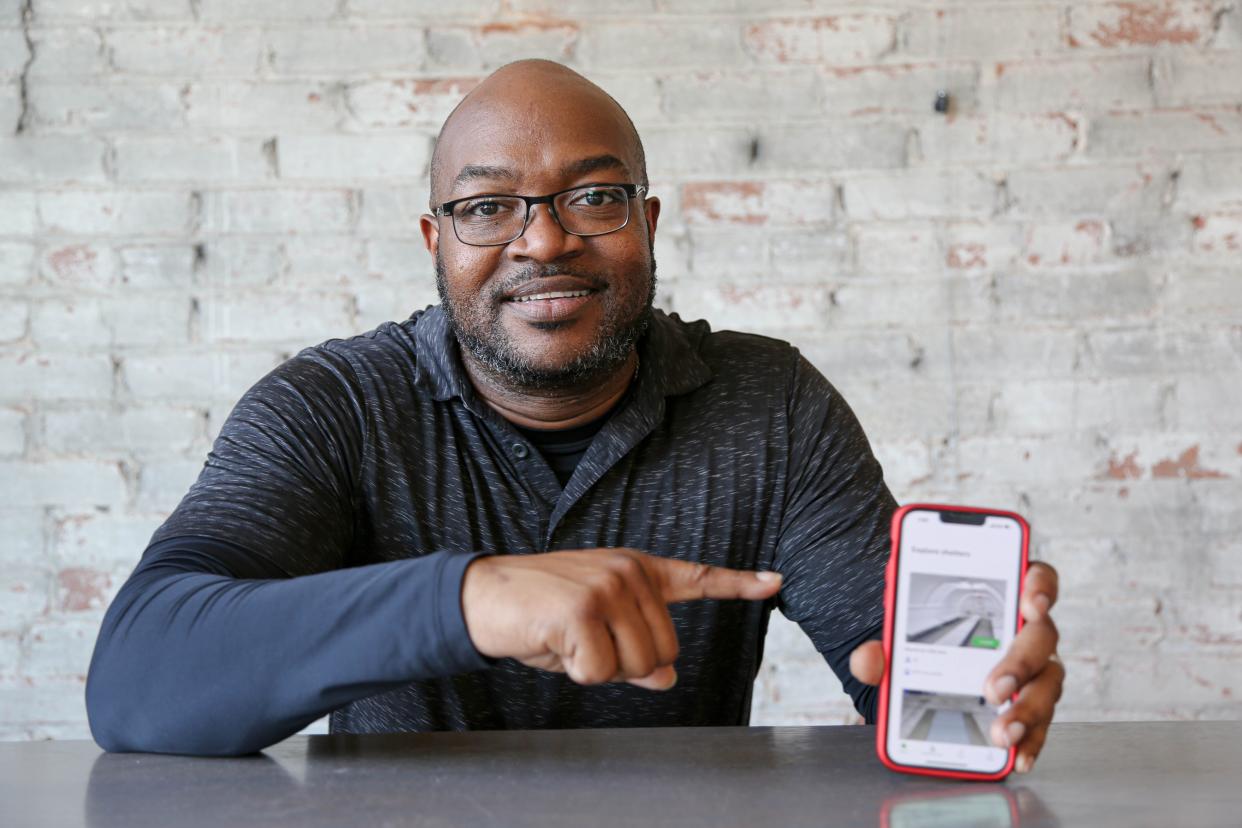
Robert Washington, 43, understands the threat of tornadoes and severe thunderstorms more than he would like.
It was May 6, 2015, when an EF3 tornado tore a path through part of Oklahoma City. Washington's daughter was only months old, and he remembers feeling helpless and terrified as news stations warned that the tornado only a mile away could hit his neighborhood at any time.
The tornado dissipated, but not before it severely damaged a mobile home park and a hotel. Washington realized that day his two-story apartment building offered no peace of mind from the storms. As he began asking around, he also discovered that the city had no publicly available storm shelters, either. It took some time, but Washington felt compelled to come up with a solution.
"Shelter Share just popped in my head one day, and this was about two or three years later," Washington said. "At this time I still didn’t really know where to go, because resources and things like that weren’t available, but I said, 'I’ve just got to do something, because if this happens again and something happens to my daughter, I just couldn’t live with myself.'"
More from 2015: RV park, motel in south Oklahoma City sustain serious tornado damage
Shelter Share, an Oklahoma City-based mobile app providing its users a network of private storm shelters and community safe rooms, launched in May 2022. Washington said he started the app with underprivileged and disadvantaged residents in mind, who during tornado warnings might feel the same uncertainty and fear he felt that fateful day in 2015.
"That’s where I started at, being in a situation where low-income and people of color are at a loss because they have nowhere to go," Washington said. "Most shelters are put in new deals or they’re out in the suburbs, so it definitely takes a community to make something like this happen. I tried to reach out to churches, community centers, just anything that is of public space that has reinforced their walls. And it started because I was remembering how I felt during that situation, and I wanted to help others during a tornado threat who are dealing with the fact that they just aren't sure where to go."
It's a well-founded fear. Oklahoma is the third-most tornado-prone state in the U.S., averaging about 67 funnel clouds each year. In 2022 alone, the state saw at least 63 confirmed total tornadoes, with several of them hitting counties in central Oklahoma, according to data from the National Oceanic and Atmospheric Administration.
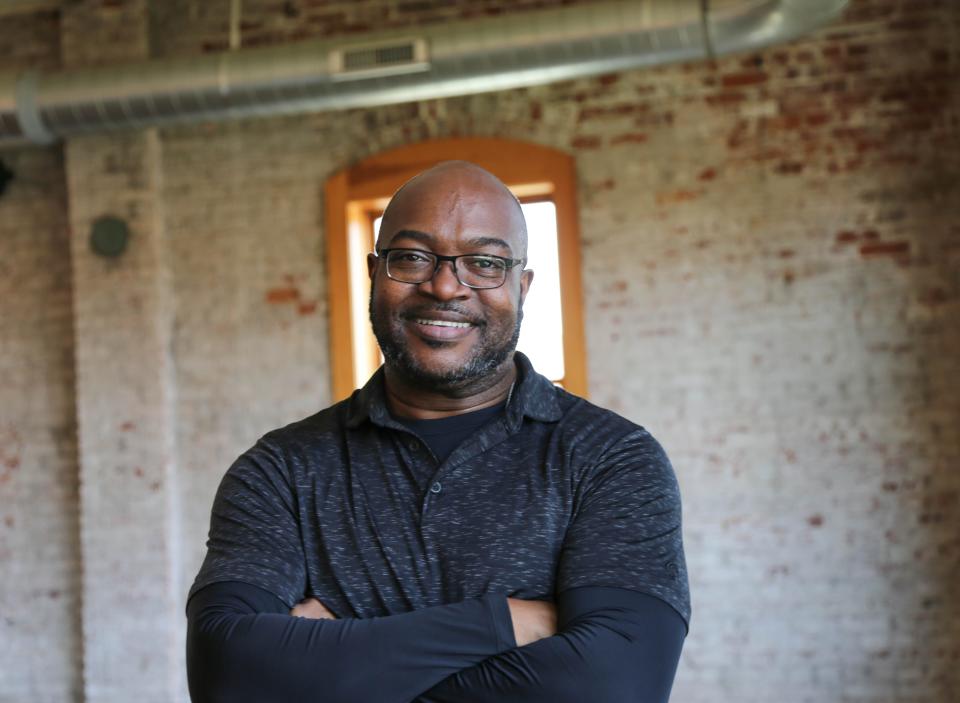
Why doesn't Oklahoma City have public tornado shelters?
Despite the high yearly count of twisters, the actual number of registered private storm shelters in the state's most populous city surprised Washington. He said he discovered that, for every 1,5000 residents in the Oklahoma City metro area, there were only 26 shelters on average. Washington also was stunned that, in spite of heightened tornado risks the past few decades, no public shelters are available in Oklahoma City.
'I've lost everything': Norman widow survives tornado but loses home of nearly 60 years
Officials with the city say it's because of logistical and public safety concerns, as 700,000 residents traveling congested roadways during a tornado warning, which can manifest in mere minutes, could prove disastrous.
"You’d have to put them everywhere around the city," Kristy Yager, a spokeswoman for the city, told The Oklahoman. "They’d have to be big enough to have bathrooms for everyone and they’d be expensive and difficult to manage. It’s just not practical."
Instead, city authorities recommend sheltering in place during a storm, which means residents should take cover in an innermost windowless room on the lowest floor of their residence, a basement or in a storm shelter accompanying their home.
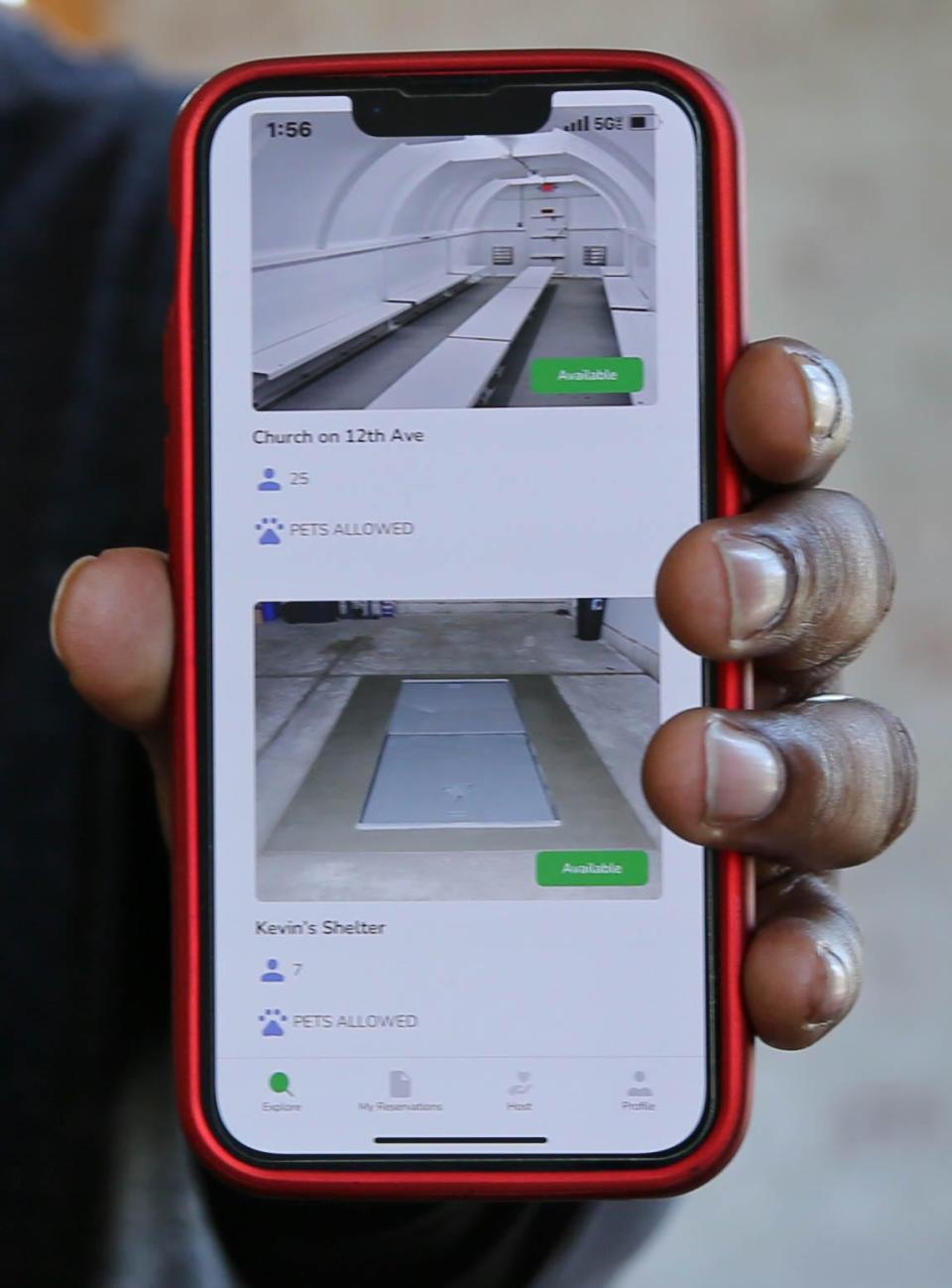
In Washington's view, sheltering-in-place might not always be feasible, and that perspective is one of the driving forces behind the Shelter Share app.
"With Oklahoma suggesting you should just shelter-in-place, I just don’t really think that that’s a viable option for anybody that’s staying in a hotel," Washington said. "It’s people who are driving through our state who are looking for some protection, as well. I also thought about the elderly and the disabled, as well, because these people have a lack of resources and the lack of ability to be able to move around in a situation like that. They may need a van, or they may need further assistance to help them get out of the house."
More: Demand for storm shelters explodes after twisters hit in Tornado Alley
So far, Shelter Share has grown from 250 users in its first month to nearly 2,000 users within a year, and Washington has been spreading the message about the app to city managers, government researchers, neighborhood leaders and capital investors throughout the state.
"There are shelters available on there," Washington said of the app. "You can go on and put your own private shelter on there, and I always ask if you know any places like churches, community centers, schools — to either post it yourself or contact me and I will go out there and take pictures and post it. But the overall user experience has been great. The app hasn’t been crashing. I do know people are using it. I do have more people that are seeking shelter than I do shelters provided, so I definitely always need more shelters on there."
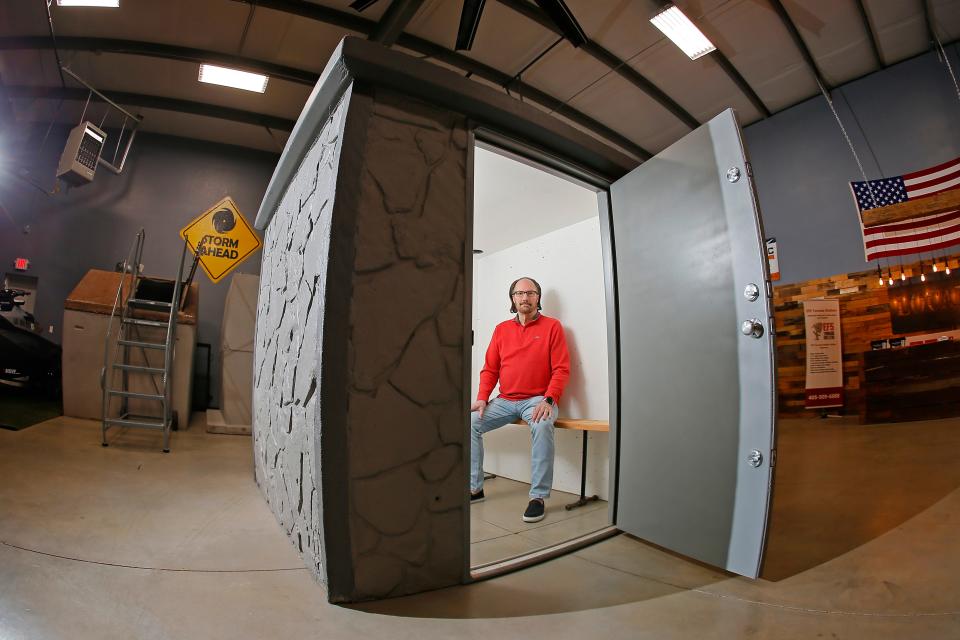
Washington has listened to feedback the app's users provide. He originally started out with a $5 monthly subscription plan, but pivoted to a $35 flat-rate charge per private shelter reservation, while other public spaces who've registered as hosts on the app, like churches, community centers and schools, are all free.
"If you need a shelter today, it’s $35; and if you need one tomorrow, it’s $35," Washington said. "It seems to be that way because, listening to the customers, that’s what they wanted. They seemed to want it on demand, like Uber. They just want to be able to get it and go to it, rather than having a monthly subscription that they say they might not use."
Shelter Share also has provided access to emergency toolkits, and Washington hopes to soon implement other services requested by users, such as background checks on hosts and post-storm resources like shower locations and laundry facilities.
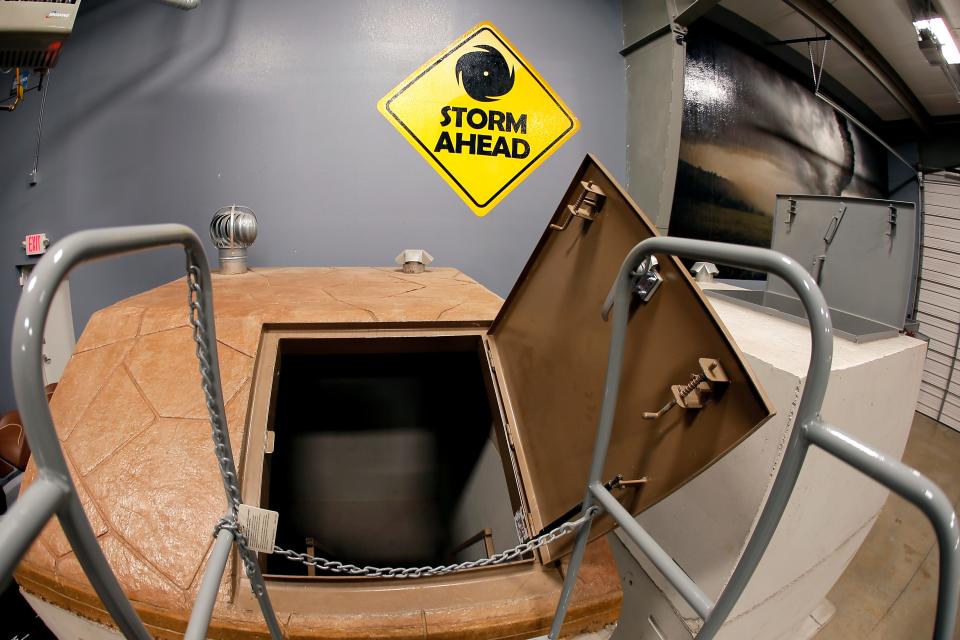
How do I stay safe during a tornado in Oklahoma?
In the meantime, Oklahoma City officials offer safety tips for residents in the event of an imminent tornado threat.
Take cover inside a well-constructed building if a tornado is nearby. Flying debris is a grave danger.
Vehicles and mobile homes are the most dangerous places to be during a tornado, and many tornado-related deaths have been attributed to being inside them when a tornado hits.
If a tornado is nearby and you're driving, take shelter inside the closest and sturdiest building. Officials say you should never try to outrun a tornado with your car: Tornadoes move quickly, and it could very well be a race that you lose.
The safest place during a tornado is a basement or a storm shelter built to FEMA guidelines and ICC 500 standards.
If you have no storm shelter, take cover in the innermost room, hallway or closet on the lowest level of whatever building you're in. Putting as many walls between you and the outside is the best chance at protection, as well as staying away from windows and doors.
Wear a helmet and use pillows, cushions, mattresses and thick blankets for additional protection. Wear sturdy shoes so that your feet are also protected if you have to walk through debris later.
Review and maintain a plan with your loved ones (including your pets) ahead of time, so that when disaster does strike, you all know what to do and how to reconnect. Be mindful of the possibility for spotty or nonexistent cell phone service during severe storms.
In a worst-case emergency, emergency kits can help you and your family survive for several days. Depending on the household, recommended items include nonperishable food, water, medicine, batteries, a pre-charged cellphone battery power bank, a weather radio, a flashlight, a first aid kit, infant formula, diapers and pet food.
If you have a storm shelter at your home, register it for free with the city of Oklahoma City, so that emergency crews can find you in case of a disaster.
This article originally appeared on Oklahoman: Oklahoma app Shelter Share connects users with storm shelters nearby

